“They’re saps because they risk their lives for strangers.”
“That’s Pop talking.”
“You’re goddamn right that’s Pop talking.”
“They risk … they risk their lives for their country.”
“Your country ain’t your blood—you remember that.”
In 1971, the year before his novel The Godfather became a film, Mario Puzo wrote of growing up in Hell’s Kitchen as the son of Italian immigrants. The adults who surrounded him were “coarse, vulgar and insulting,” the opposite of “all the cliches of lovable Italians, singing Italians, happy-go-lucky Italians.” Puzo sought “to escape these uncongenial folk by becoming an artist, a writer.”
All artists—especially writers—seek to escape their lineage, if only to affirm the value of their own egos. For writers born of immigrants, this lineage is a special burden and blessing.
Growing up, my street was full of other Italians who were only a few years removed from the old world. They drifted across each other’s lawns without care, their long and loud conversations rising into the moonlight. When I would come home from college, they reached up and squeezed my shoulder, their fingers oil-blackened, nails cracked from masonry or mowing. “Why are you going to school?” they would ask. “Come work for me.”
Like Puzo, I came to learn that these immigrants “were already more ‘American’ than I could ever become.” For them, America existed both as a dream and reality; a paradox. “What has happened here has never happened in any other country in any other time,” Puzo writes. The poor, “whose children had inherited their poverty, their illiteracy, their hopelessness, achieved some economic dignity and freedom. You didn’t get it for nothing, you had to pay a price in tears, in suffering, but why not?”
The Corleones of The Godfather films certainly pay that price in tears and suffering—family tension, social ambition, and even violence haunt their lives. It’s important to remember, though, how these qualities are all tied to their tenuous American identities. However American they become, they will always be immigrants.
“I believe in America” are the first words spoken in The Godfather, the start of a plea by Amerigo Bonasera for Don Corleone to exact revenge for the assault of Amerigo’s daughter. “America has made my fortune. And I raised my daughter in the American fashion,” Amerigo says. After two men “beat her, like an animal,” he “went to the police, like a good American.” Yet the men were only handed a suspended sentence. Instead, Amerigo told his wife, “for justice, we must go to Don Corleone.”
The film’s opening words render America as an object of faith; an immigrant must believe in a dream of America, however imperfect. In Puzo’s novel, the story begins in New York Criminal Court No. 3; Amerigo doesn’t visit Don Corleone until several scenes into the book. In the film, though, the opening scene perfectly captures Italian immigrant anxiety about America: It is a land of opportunity, but a dangerous culture, rife with injustice.
Yet it’s The Godfather Part II, now celebrating its 50th anniversary, that director Francis Ford Coppola more fully shapes into an immigrant epic. Michael’s ambitions continue, yet Coppola intertwines his story with scenes from Sicily at the turn of the 20th century. Those sequences dramatize young Vito Corleone’s revenge for the death of his mother and his later rise to power. This blend of past and present affirms that an immigrant’s story is inextricable from their country of origin.
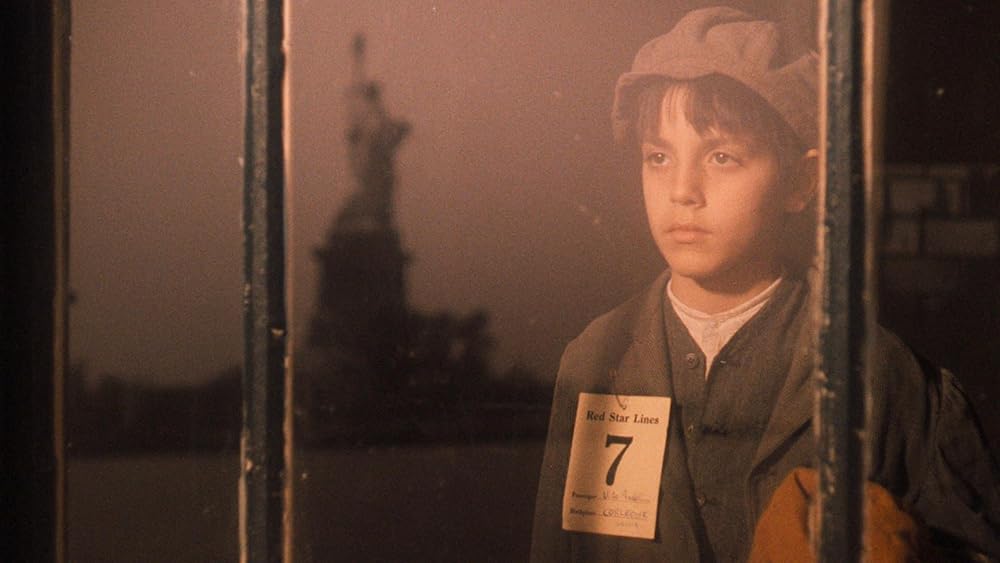
While in graduate school in Newark, New Jersey, I would talk with a Sicilian American friend about the absence of others in the class with similar last names. She told me that Italians, Sicilians especially, were among the least represented in higher education, a scarcity that increased as one rose from student to professor. Italians have had financial and social success in America, and yet they remain eyed with something akin to suspicion in academic settings.
That suspicion comes across in The Godfather Part II. Coppola worried that the second film “was too demanding, too complex.” It “goes much further than the first one. It’s much more ambitious and novelistic in its structure.” Whereas the first film was anchored in immigration, the second film dramatizes both immigration and migration. However powerful and ruthless Michael has become, he faces conflict in Nevada. His kind is unfamiliar. In New York City, Italian immigration became insulation; in gaining power, the mafia was able to affirm a Sicilian system in a new land.
Yet in Nevada, Michael Corleone is once again an immigrant. When Sen. Pat Geary takes the stage at the first communion party for Michael’s son, Anthony, the politician mispronounces the boy’s name. Afterward, in a tense meeting with Michael, he turns from prickly to pugnacious. Geary demands $250,000 and 5 percent of the monthly gross of all hotels controlled by the Corleones, including one in Reno and now three in Vegas. “I don’t like to see you come out to this clean country in oily hair, dressed up in those silk suits and try to pass yourselves off as decent Americans,” Geary says.
A criminal could be decent, of course, as long as they weren’t Italian. Geary’s tone recalls an 1882 editorial from The New York Times titled “Our Future Citizens” that bemoaned “a political problem of great importance”: how to “assimilate a very degraded and ignorant population” of southern Italians into New York City. Their children, “ragged, filthy, and verminous,” know “nothing of our language.” They spend “the days in the streets,” and “will naturally and inevitably form the criminal class of this city.” No matter the success of Italians in America, there remained latent suspicion.
Yet there is a hint of this caricature in Puzo’s own essay about Hell’s Kitchen. The mothers and fathers around him “were a grim lot: always shouting, always angry, quicker to quarrel than embrace.” Their coarseness had cause: “Their lives were a long labor to earn their daily bread and that physical fatigue does not sweeten human natures.”
Michael’s long labor includes a series of Senate committee hearings, intending to reveal the extent of the Corleone criminal influence. There is something fitting that perhaps the most American machination possible—government bureaucracy—threatens to take down the family. Yet Michael manages to evade prosecution.
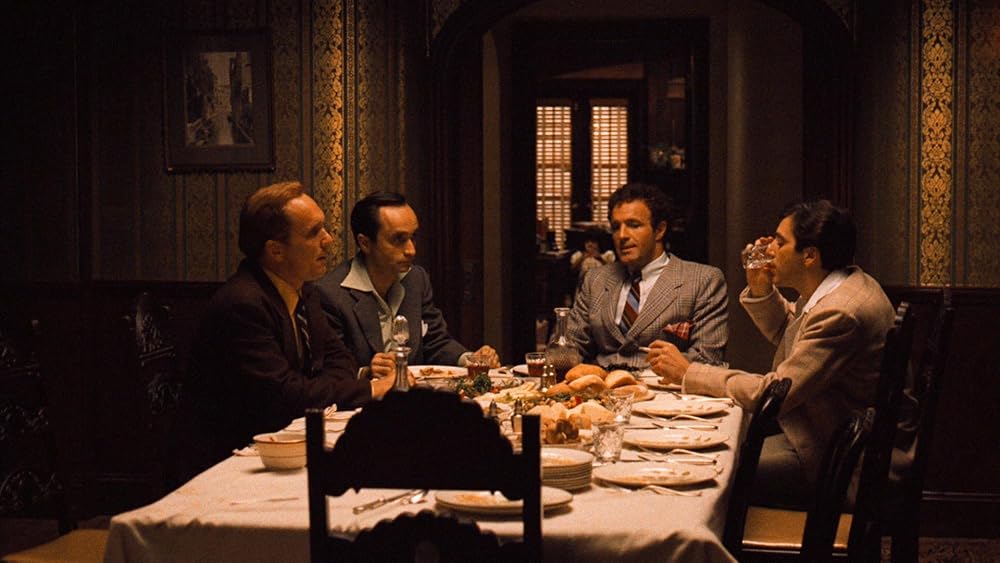
In the final scene of The Godfather Part II, a flashback, the Corleone children sit at the dining room table on their father’s birthday. The conversation turns to the war in the Pacific, and Sonny, the eldest son, dismisses soldiers as “saps” because they risk their lives for “strangers.” Michael says they are risking their lives “for their country,” and Sonny snaps: “Your country ain’t your blood—you remember that.”
His siblings go to greet their father in the other room, offscreen, leaving Michael alone at the table and ending with the film’s iconic final shot.
“It became clear to me that there was a wonderful parallel to be drawn, that the career of Michael Corleone was the perfect metaphor for the new land,” Coppola said in 1975. Like America, Michael was born idealistic, “the child of an older system, a child of Europe.” Ultimately that idealism was tainted; “he got blood on his hands.” Alone and exhausted, Michael is rich. He is a success. He is, forever, an immigrant’s son.
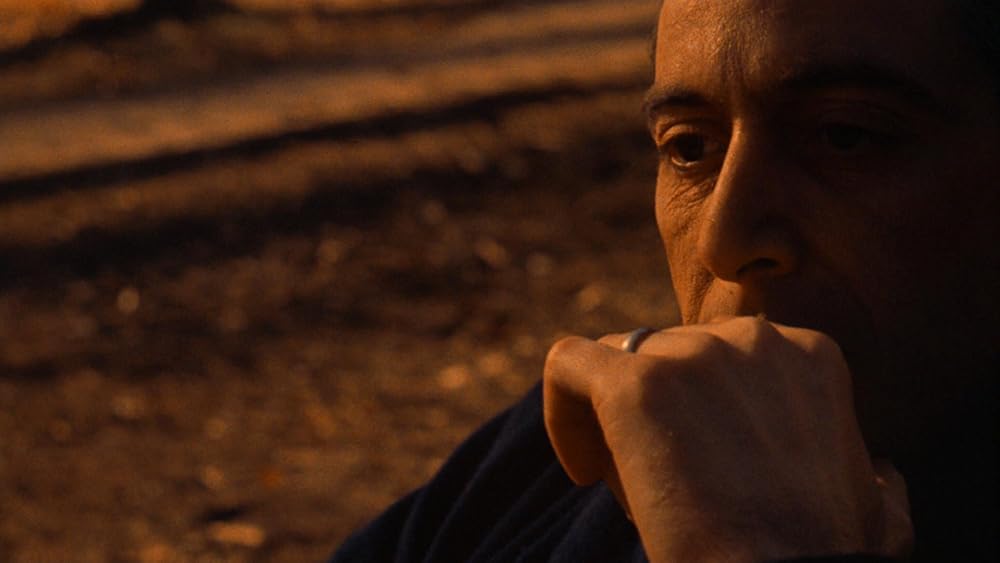
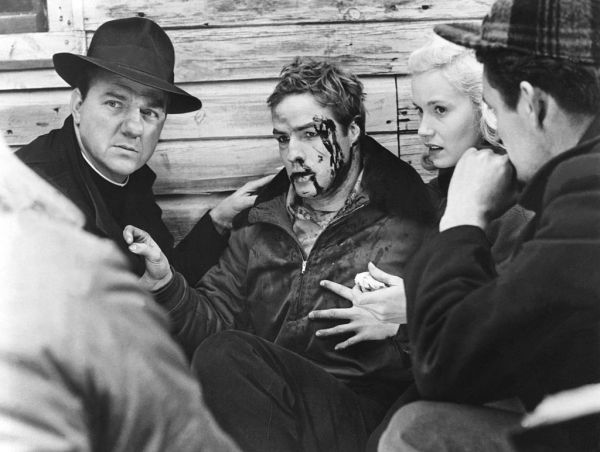
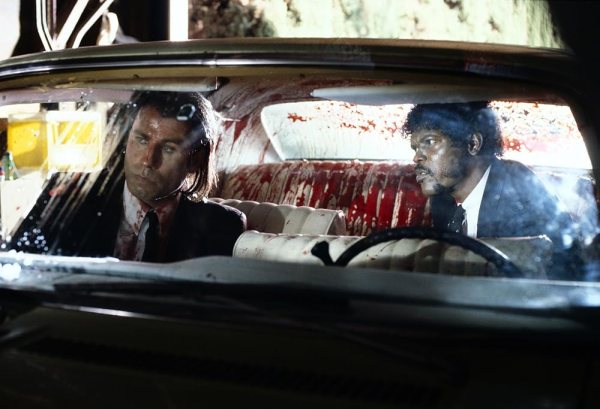
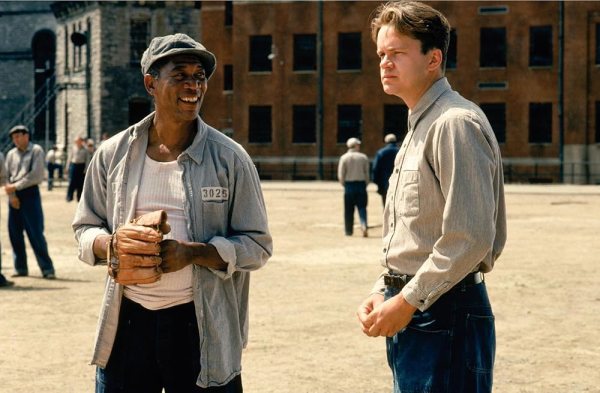

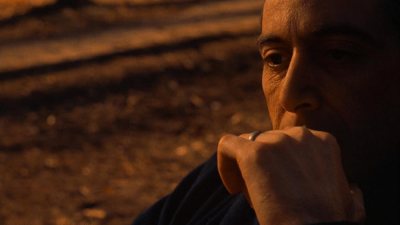
Please note that we at The Dispatch hold ourselves, our work, and our commenters to a higher standard than other places on the internet. We welcome comments that foster genuine debate or discussion—including comments critical of us or our work—but responses that include ad hominem attacks on fellow Dispatch members or are intended to stoke fear and anger may be moderated.
With your membership, you only have the ability to comment on The Morning Dispatch articles. Consider upgrading to join the conversation everywhere.